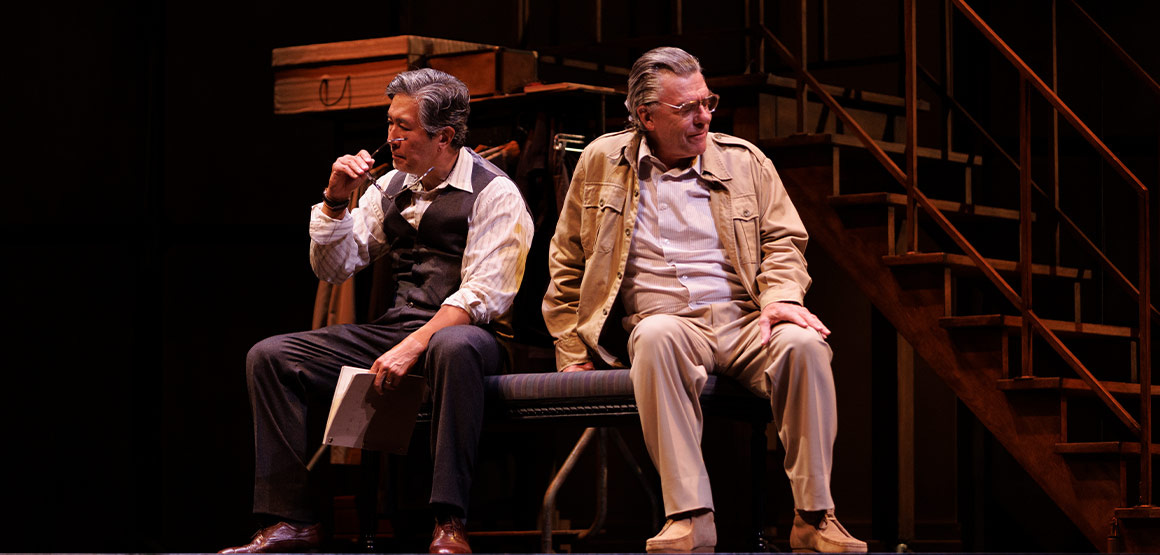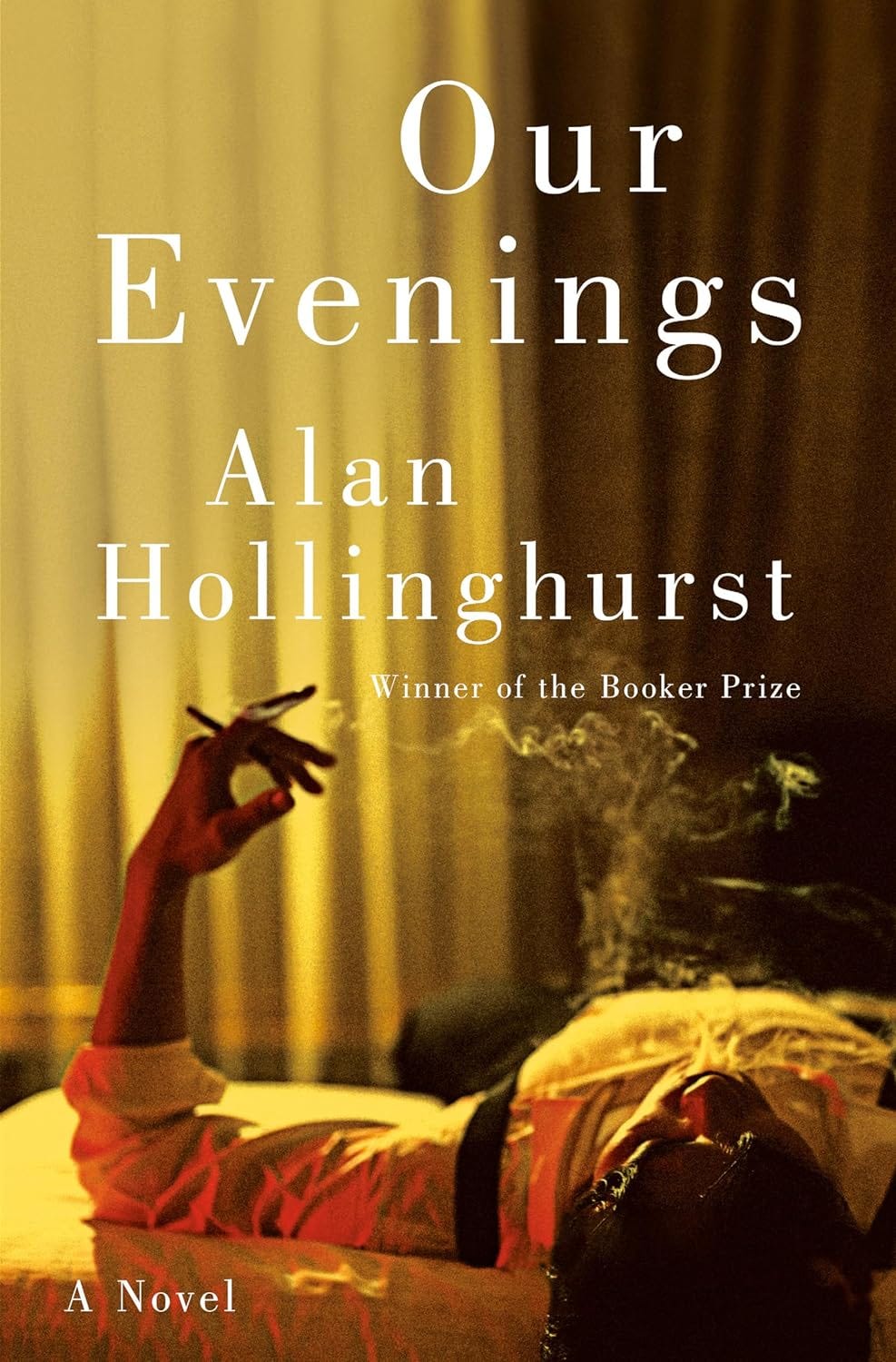Since I’ve been feeling creatively stuck, I thought it’d be beneficial to address some recent sources of inspiration: cool things that others have created that motivated me to get moving on my own projects.
One was a play that was presented at Stratford and the National Arts Centre. I work at the latter, and this may get ethically sticky if I verge too far into criticism. So I’ll try not to share my opinions, but instead one specific observation, about Leanna Brodie and Jovanni Sy’s Salesman in China.
The second is a book: Alan Hollinghurst’s Our Evenings. I bought it after Googling what I should read before my upcoming London trip. It moved me beyond what I’m capable of sharing here. If I were a tad more articulate, and committed to writing a lengthy book review, I’d share those thoughts. But I’ll keep it brief for now.
The thing about Salesman in China that got me excited to create again is simply that it’s a play about theatre. The characters are actors, directors, and playwrights and we spend much of our time watching them rehearse a play. Seeing a dramatization of a rehearsal process made me reflect on the times I was in similar rooms, doing similar work, way back in the day.
Being reminded of the process got the gears turning. I’d been humming and hawing about the politics of the industry, the should’s and shouldn’t’s of creating theatre, and the possible merit of whatever it is I could bring to the table. In other words I’ve been caring too much about what others think (surprise, surprise). But having play rehearsals shown on stage reminded me of what I’d been missing: Right, I thought, I love this stuff.
And the “stuff” has nothing to do with quality. It’s certainly not that I’m attracted to the theatre because I crave wild commercial success, lol. For me, the fulfilment comes from the early days of the process. Like in the rehearsal room, when we’re throwing mud at the wall and seeing what works. When an artistic decision slaps, so to speak, it can briefly reflect our shared humanity. It’s in those fleeting moments that we’re reminded of who we are and, perhaps more importantly, who we are to each other.
Often we do things because we like the process of doing it, and I have to remind myself that that’s enough. Art shouldn’t have to be about the end result (or the ROI, if you work at Shopify or something). Having an office job where deadlines are important and ever-present can sometimes make me lose sight of that.
Now the book.
Our Evenings also deals with theatre. It traces the life of a young Burmese man named David Win growing up in England and building a career as an actor. My biggest takeaway is Hollinghurst’s breathtaking transitions. We follow David in the first person from when he’s a young boy, but we never read boring, expository phrases like “And then I turned 30.” We’re rather abruptly thrown into his important life milestones and made to connect the dots. It captures how life actually works, I’d say. We keep chugging along until we suddenly realize there’s a shocking amount of time and experience behind us.
When David is older and suddenly living as a successful actor, I felt as a reader how I suspect David felt himself: surprised that he got there. Hollinghurst’s style suggests a larger perspective on how we develop in our careers and lives overall. Random choices are made. We make do with what we have and try our best. Then someday we look back and think, Huh. That’s how that panned out.
Our Evenings reminded me that a myriad of different paths are presented at any given moment. Yes, hard work is likely required to get to where we want to go, artistically or otherwise. But there’s no sense being weighed down by large questions that prevent action. Taking small steps toward what interests us will one day lead to fulfillment, and we may be pleasantly surprised once we find ourselves there.
I see these encounters as little cracks in a wall. Salesman in China and Our Evenings were two pieces of art that let some light into my own dark cave. It’s good practice to stay on the lookout for those little cracks. A tiny bit of light can go a long way.





